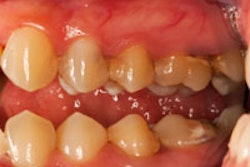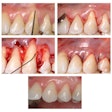The same bacteria that cause periodontitis also promote heart disease, according to a University of Florida (UF) study. This discovery could change the way heart disease is diagnosed and treated, the researchers noted. The study was presented on May 18 at the American Society for Microbiology general meeting in Boston.
"We report evidence that introduction of oral bacteria into the bloodstream in mice increased risk factors for atherosclerotic heart disease. Our hope is that the American Heart Association will acknowledge causal links between oral disease and increased heart disease. That will change how physicians diagnose and treat heart disease patients," said presenter Irina Velsko, a graduate student in the University of Florida College of Medicine.
In the study, the researchers infected mice with four specific bacteria (Porphyromonas gingivalis, Treponema denticola, Tannerella forsythia, Fusobacterium nucleatum) that cause periodontitis and tracked their spread. Once the bacteria were detected in the mouse gums, heart, and aorta, researchers saw an increase in risk factors, including cholesterol and inflammation, associated with heart disease.
Funded by the National Institutes of Health/National Institute of Dental and Craniofacial Research, the study is part of a larger study on the effects of periodontitis on overall health being conducted in the laboratory of Kesavalu Lakshmyya, BVSc, MSc, in the department of periodontology in the UF College of Dentistry.
Heart disease is the leading cause of death in the North America. Periodontitis affects 46% of the U.S. population and is caused by bacteria that grow on the teeth under the gums. Although doctors know that patients with periodontal disease are at higher risk for heart disease, periodontal disease isn't viewed as a traditional risk factor for heart disease. In 2012, the American Heart Association supported the association between periodontitis and heart disease, but not causal association.
"Our intent is to increase physician awareness of links between oral bacterial infection and heart disease. Understanding the importance of treating gum disease in patients with heart disease will lead to future studies and recommendations for careful attention to oral health in order to protect patients against heart disease," said cardiologist Alexandra Lucas, MD, of the UF College of Medicine, a co-investigator in the research.



















